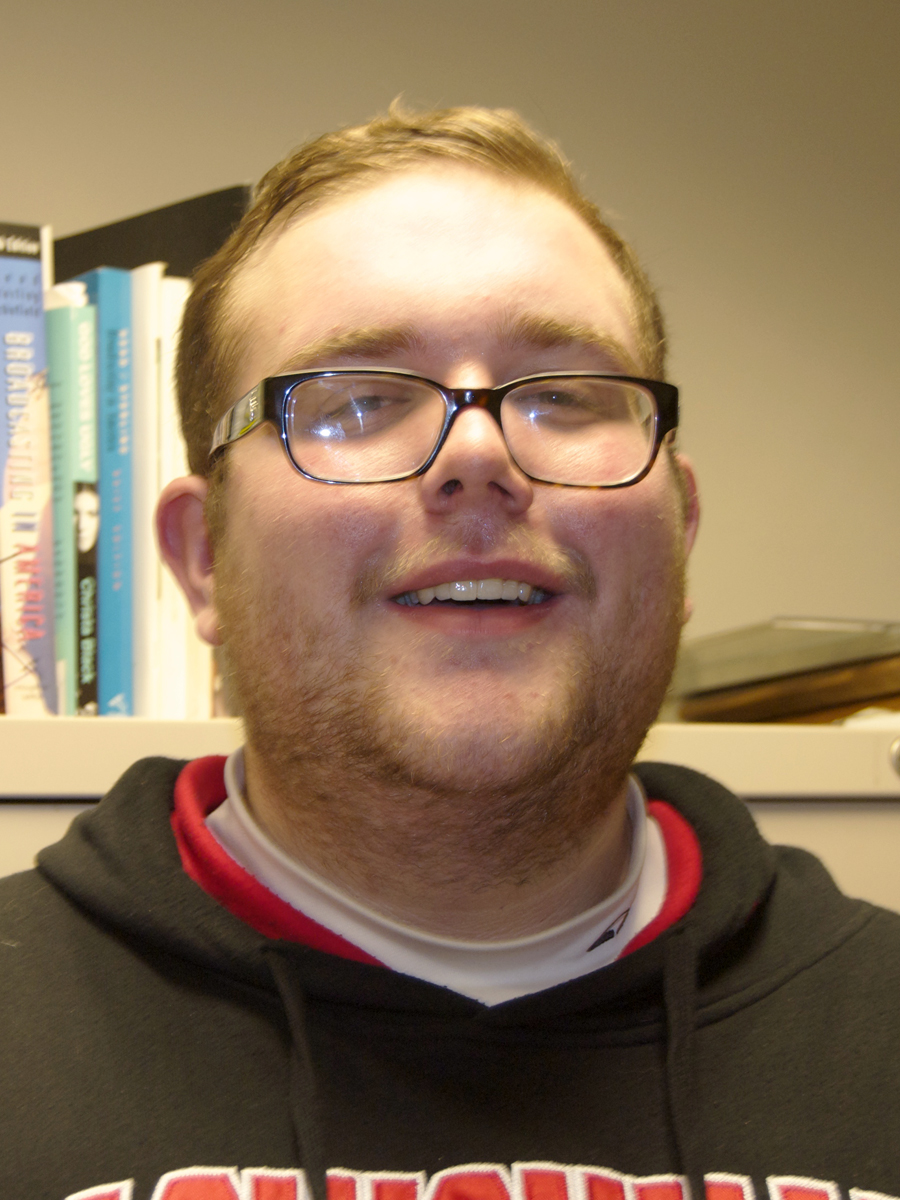Read Poindexter, nursing major here at Sinclair, has a special story to tell. He has a neurological disorder called Tourette’s syndrome. Tourette’s is characterized by sudden, non-rhythmic, repetitive motor movements called tics. Common examples of tics include eye blinking, facial movements, sniffing, coughing, and throat clearing.
“Tourette’s is similar to an itch somewhere in the body,” explained Poindexter. When he feels the “itch,” his body involuntarily tics, which may be noticeable to others.
 Tourette syndrome’s onset usually occurs in childhood and consists of multiple motor, or physical, tics and some phonic, or vocal, tics. When some people think about Tourette syndrome, they think about those afflicted yelling derogatory remarks, swear words, an inappropriate phrases. However, this is a common misconception. This particular type of Tourette’s is called coprolalia and affects only about ten percent of Tourette’s patients.
Tourette syndrome’s onset usually occurs in childhood and consists of multiple motor, or physical, tics and some phonic, or vocal, tics. When some people think about Tourette syndrome, they think about those afflicted yelling derogatory remarks, swear words, an inappropriate phrases. However, this is a common misconception. This particular type of Tourette’s is called coprolalia and affects only about ten percent of Tourette’s patients.
Tourette syndrome can be managed. Any combination of education, reassurance, relaxation techniques, medicines, and psychobehavioral therapy may help ease the symptoms. Of the cases requiring medical treatment, up to fifty percent of cases involve comorbidity, meaning that another condition is present. The two most common comorbid conditions are obsessive-compulsive disorder and attention deficit hyperactivity disorder.
Although Tourette’s generally is both chronic and lifelong, it is not a degenerative condition. Those affected by Tourette syndrome have a normal life expectancy.
“Having Tourette’s can be stressful and may affect my life differently than others,” Poindexter reports. Sometimes he takes longer during testing because the tics become more prevalent. Poindexter’s passion in life is playing the drums, which he says is both fun and helps ease the tics.
Although there is no known cure for Tourette Syndrome, research is plentiful. Neurologists researching Tourette syndrome often utilize brain imaging to identify activities between brain regions and circuitry and neurochemical factors. Poindexter participated in a research study for Tourette’s. In the study, magnetic probes sent currents through his brain with the goal of the study being to find a way to ease Tourette’s.
Poindexter has chosen to major in nursing. “I like to help people and I can see myself in an environment where people need to be treated with comfort and care,” he explains. He does not yet have a nursing specialty in mind.
Poindexter’s gratitude is far reaching. “I would like to give recognition to my mother, Dawn Poindexter. She is an inspiration to me and has given me courage to teach the world about Tourette Syndrome on my own.” His mother also facilitated educational and support groups at Centerville United Methodist Church. Poindexter also extends his gratitude to our campus, saying, “I would like to thank Sinclair Community College for being very supportive of my disorder. I would also like to thank the Clarion for giving me an opportunity to educate the public about Tourette syndrome.”
Maggie Stacey
Staff Writer
